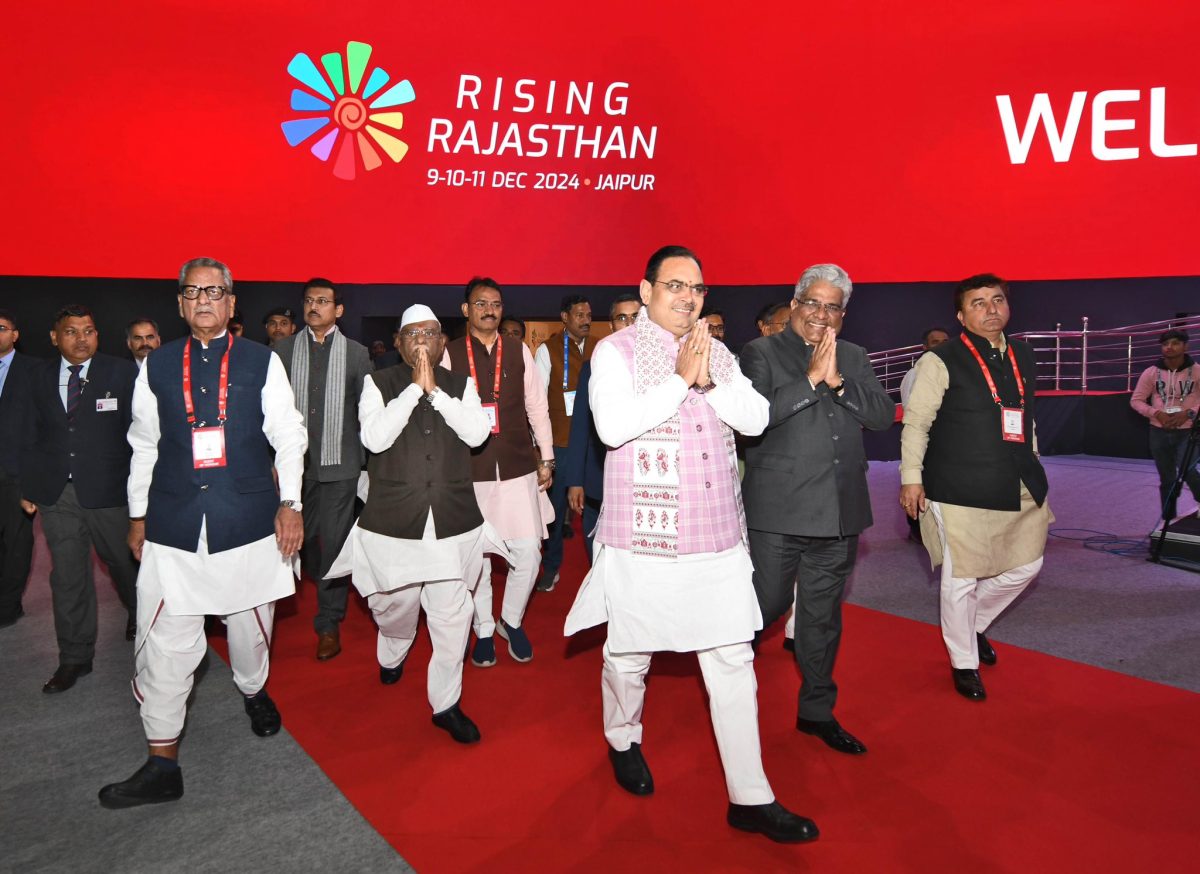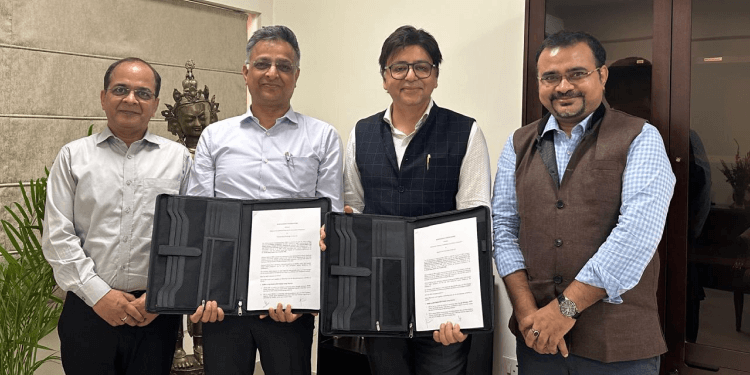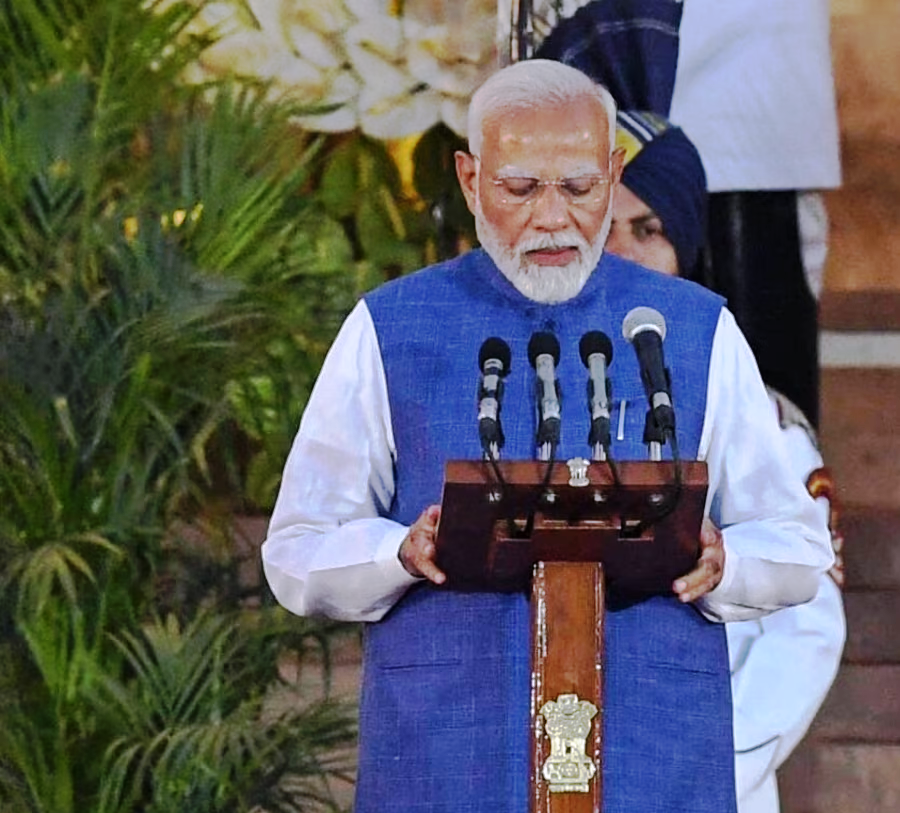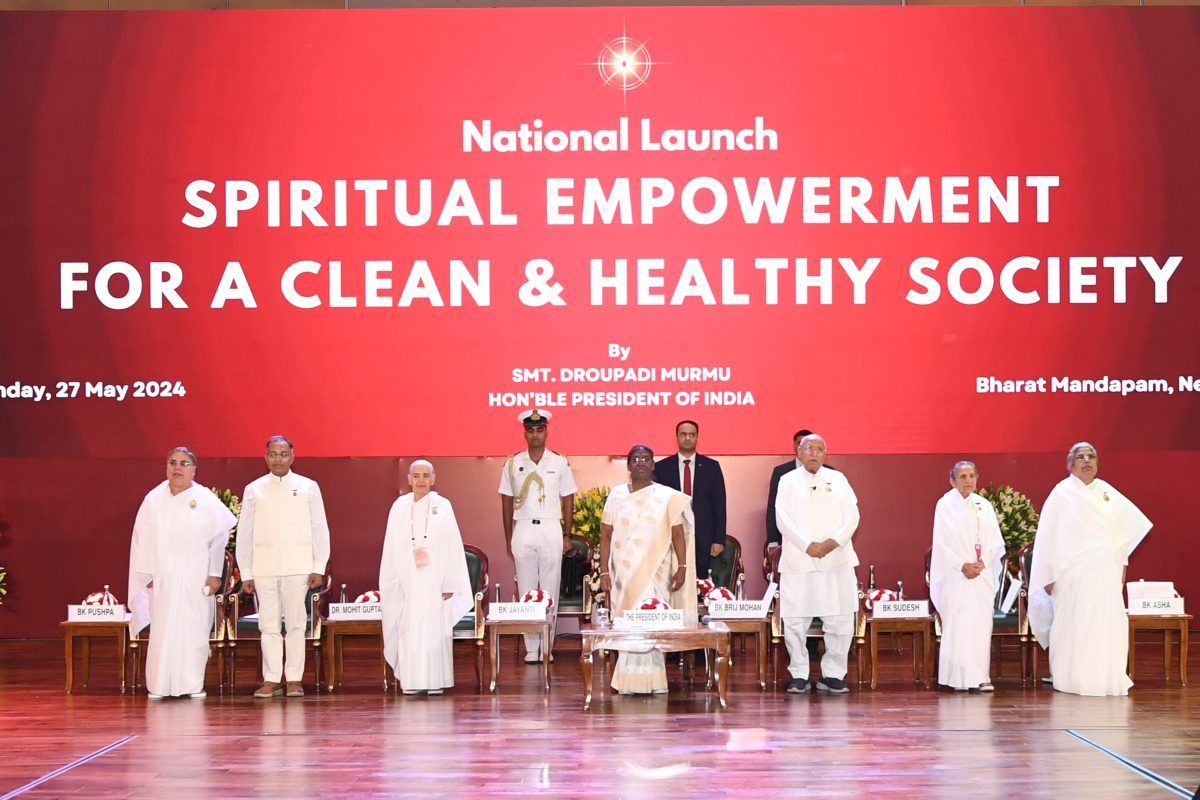Dark Clouds Hang Over Mega Solar MoUs

Dark Clouds Hang Over Mega Solar MoUs
Like tourism, Rajasthan has a natural advantage for solar energy generation. This has been well-recognized by the solar power developers as well as the state government. Gujarat may have been the state with maximum solar capacity but Rajasthan always followed close, currently having about 1000 megawatt installed capacity. Rightfully, after coming to power the BJP government led by Vasundhara Raje attached top priority to the sector outlining a vision of achieving 25000 megawatt in her five year tenure. In the past one year, the state has shown enough aggression in leveraging the advantages by signing agreements with solar power and park developers. If these MoUs get translated into actual projects, investments in the sector alone can overshoot one lakh crore.
The big-ticket investments were announced by the chief minister herself in much fanfare. But such announcements were also a feature in the previous government. If one looks back, one wonders why a project of 4000 megawatt in Sambhar jointly promoted by five of the heavyweight public sector utilities was shelved. Secondly, the ambitious solar park at Jodhpur spreading over 10,000 hactres remains a non-starter.
Looked from the prism of such poor track record in implementation, the current MoUs worth close to 30,000 megawatt doesn’t inspire much. There are also several critical missing links that erode the credibility in these mega MoUs. Industry watchers and solar power developers say that in all these deals, the most important component is power purchase agreement. In all these MoUs, there is not a single case where the power purchase agreement is signed.
“Any MoU in solar power sector becomes complete if there is a power purchase agreement. In all these MoUs, there is no such arrangement. Without power purchase agreement, these agreements have no meaning. The chief minister may have scored a political point but actually this will not change the scenario very much,” said an industry expert.
Another critical point missing in the MoUs is the land allotment. The state government has already brought in a very proactive policy in taking over the land from farmers on a lease for 30 years which can be increased to another 10 years. But the MoUs signed are very big and require more than a lakh acre land to set up the plants and parks. That’s why, the onus would be on the government to facilitate to acquire such huge tracts of land and the industry cannot do it alone. There is no roadmap for this and land availability for all these solar plants and parks remains a big question mark. Past experience shows that land acquisition on such a massive scale have never been easy. In cases where the government has been able to acquire land, it has not been without an unviable delay. There are no answers to this, leaving the fate of such proposal purey in the realm of discourse.
For example, the Indian subsidiary of the New York Stock Exchange-listed SunEdison Inc entered into an agreement in October last year with the state government to set up solar plants 5000 MW capacity. Since solar power requires subsidies, power purchase agreements become the key piece of any such deal and that crucial part is not addressed in the MoU. Additionally, in order to generate 5000 MW, SunEdison will require 25000 acre of land and this part too have not been deliberated in detail.
Similarly, Infrastructure Leasing & Financial Services (IL&FS) has inked a 50:50 joint venture agreement with the Rajasthan government to develop solar parks that can generate 5000 MW power. As part of the deal, IL&FS is required to develop, finance, implement, own and operate solar parks and ancillary facilities required for other uses to attract manufacturers, EPC companies and equipment makers in the value chain.
The government will help in availing the land. But there has been no time-frame set for the JV to initiate action.
Adani Enterprises Ltd has also boarded the MoU bandwagon proposing to develop solar parks with a 10,000 MW capacity. Like many other MoUs, this agreement also comes woefully short in terms of details and time-frame. Other heavy-weight deals include Reliance Power, which has proposed to develop solar parks and projects with a capacity of 6000 MW. The list also features Azure power for 1000 MW and 5000 MW by Essel Infraprojects among several others.
Majority of the MoUs propose to set up solar park which will facilitate setting up of manufacturing units and power developers. Solar parks have always been criticized as proxy for land grabbing.
What the state needs is a balance between power and park developers. Going by the current mix, the parks’ capacity outweighs the requirement for generation. This has given rise to speculation that much of the announcements could have other motives other than development of solar energy in the state. Only time will tell that if the future is bright or cloudy for the solar sector in the state. The past doesn’t inspire much to believe in the future.





